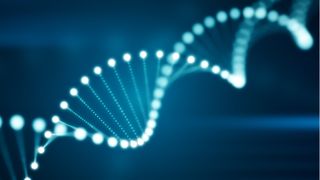- Biomemory's DNA-based solutions address data storage issues
- DNA storage is compact, durable, environmentally friendly
- $18M funding supports product development and industry partnerships
Biomemory, a French startup established in 2021, has long been working to develop DNA-based data storage technology.
It was the first company to make a DNA storage device available to the general public, marking an early step in commercializing this technology. Biomemory's approach involves encoding digital data within synthesized DNA strands by translating the DNA bases - A, C, G, and T - into binary code. Data can then be retrieved by sequencing the DNA and converting it back into binary.
DNA storage is viewed as a potential solution to the growing global demand for storage, driven by increasing data generation. It is estimated that by 2025, humanity will produce 175 zettabytes of data, a figure that challenges the capacity and sustainability of existing storage methods. DNA’s compact and durable nature offers an alternative that could reduce spatial and environmental footprints while providing long-term stability.
Funding secured
A number of startups have entered the DNA storage space in recent years, including Catalog, Ansa Biotechnologies, and Iridia in the United States, as well as Helixworks, DNA Script, and BioSistemika in Europe. Biomemory is focusing on creating end-to-end solutions for data centers, using bio-sourced DNA fragments that are designed to last for thousands of years without requiring energy for maintenance.
To further its efforts, Biomemory recently secured $18 million in Series A funding.
“This investment marks a pivotal moment for Biomemory and the future of data storage,” said Erfane Arwani, CEO and Co-founder of the startup. “With our DNA storage technology, we’re not just addressing today’s data challenges - we’re building solutions that will sustain the ecosystem for the next century and beyond. By sharing this value with our partners and collaborators, we aim to collectively advance the sector and foster a thriving data storage ecosystem.”
Biomemory intends to use the funds to develop its first-generation data storage appliance, optimize biotech processes, and quicken commercialization. Additional goals include forming partnerships with industry players and cloud providers and recruiting experts in molecular biology and engineering.
The technology offers the potential to store all of humanity’s data in a single data center rack and Biomemory plans to scale its molecular storage solutions to exabyte capacity by 2030, listing sustainability and durability as its key priorities.










 English (US) ·
English (US) ·